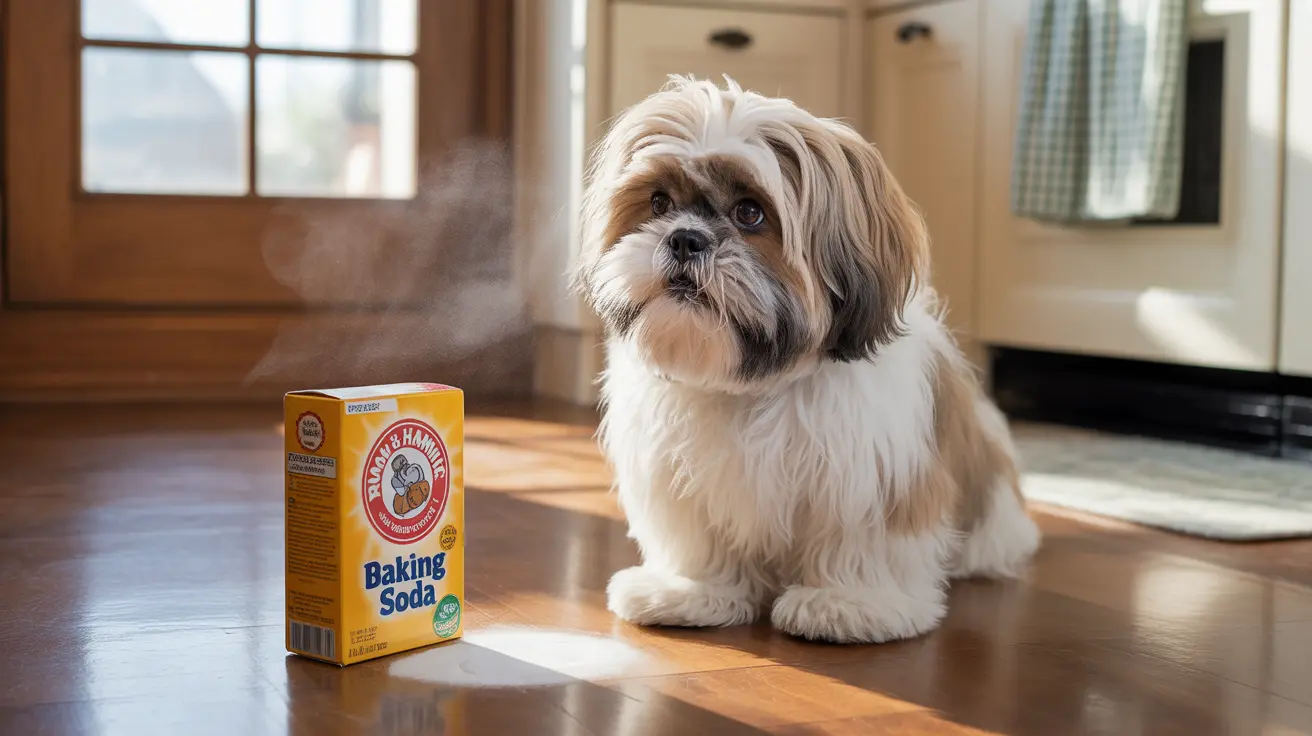Finding out your dog ate baking soda can be a frightening experience for any pet owner. While this common household ingredient might seem harmless, it can pose serious health risks to our canine companions. Understanding the dangers, symptoms, and necessary actions to take is crucial for keeping your pet safe.
In this comprehensive guide, we'll explore everything you need to know about baking soda ingestion in dogs, including toxic doses, warning signs, and immediate steps to take if your pet has consumed this potentially dangerous substance.
Understanding the Dangers of Baking Soda for Dogs
Baking soda, or sodium bicarbonate, can be toxic to dogs when ingested in significant quantities. The primary concern stems from its high sodium content, which can severely disrupt your dog's electrolyte balance and lead to dangerous metabolic changes.
Even small amounts can cause digestive upset, while larger quantities may result in serious health complications, particularly in smaller dogs or those with underlying health conditions.
Signs Your Dog Has Consumed Too Much Baking Soda
The symptoms of baking soda toxicity typically appear within 30 minutes to 4 hours after ingestion. Early warning signs include:
- Excessive thirst and urination
- Vomiting and diarrhea
- Lethargy and weakness
- Muscle tremors or spasms
- Disorientation
- Rapid breathing
In severe cases, dogs may experience seizures, heart problems, or collapse, requiring immediate emergency veterinary care.
Emergency Response and Treatment
If you suspect your dog has consumed baking soda, don't wait for symptoms to appear. Contact your veterinarian or emergency animal hospital immediately. The amount consumed and your dog's size will determine the necessary course of action.
Never attempt to induce vomiting without professional guidance, as this could potentially worsen the situation. Your veterinarian may recommend:
- Immediate examination
- Blood work to check electrolyte levels
- IV fluid therapy
- Cardiac monitoring
- Supportive care as needed
Prevention and Safety Measures
The best way to protect your dog from baking soda toxicity is through prevention. Consider these safety measures:
- Store baking soda in sealed containers out of your dog's reach
- Clean up spills immediately and thoroughly
- Keep baking soda-based products (including cleaning supplies and craft materials) secured
- Be cautious when using baking soda for household cleaning
- Inform all household members about the risks
Frequently Asked Questions
How much baking soda does it take to make a dog sick or toxic?
The toxic dose of baking soda for dogs is approximately 4-6 grams per kilogram of body weight. For a 10-pound dog, as little as 2-3 tablespoons could be dangerous. However, even smaller amounts can cause problems in some dogs.
What are the first signs that my dog has eaten too much baking soda?
The initial signs typically include vomiting, diarrhea, excessive thirst, lethargy, and drooling. These symptoms usually appear within the first few hours after ingestion.
What should I do immediately if my dog ate baking soda by accident?
Contact your veterinarian or pet poison control immediately. Note the amount ingested if possible, and watch for symptoms. Don't induce vomiting unless specifically instructed by a professional.
Can baking soda be safely used around dogs, such as for cleaning or grooming?
While baking soda can be used for cleaning and deodorizing around dogs, ensure all surfaces are thoroughly cleaned and dried afterward. Never apply baking soda directly to your dog's fur or skin without veterinary approval.
Why are small dogs more at risk from baking soda ingestion than larger dogs?
Small dogs are at higher risk because it takes less baking soda to reach a toxic dose in their smaller bodies. Their lower body weight means they're more susceptible to electrolyte imbalances and other complications.
Conclusion
While baking soda ingestion can be dangerous for dogs, quick action and proper veterinary care can lead to positive outcomes. Always err on the side of caution and contact your veterinarian if you suspect your dog has consumed baking soda. Remember that prevention is the best approach - keep all household products secured and out of your pet's reach.






